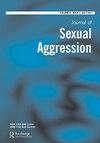Self-Determination Theory as an underpinning theory for community maintenance programs for those who have sexually offended
IF 1.5
4区 社会学
Q2 CRIMINOLOGY & PENOLOGY
引用次数: 1
Abstract
ABSTRACT The challenges faced by those who are returning to the community after prison are well documented. Community re-entry, especially for those who have sexually offended, is particularly stressful and fraught with many difficulties. Community maintenance programmes (CMPs) are community programmes designed to assist those who are released from prison, who have generally completed an offence-specific custodial treatment programme. There remains however no known published research that has examined the programmatic features of CMPs, their efficacy, the experiences of those who facilitate and participate in CMPs, and little is known about the theoretical underpinnings of CMPs. This paper reviews some of the factors that may contribute to behaviour change and the maintenance of that change, with a particular focus on CMPs for those who have sexually offended. Stemming from two recent qualitative studies interviewing CMP participants and service providers in Australia’s largest CMP, this paper proposes Self-Determination Theory (SDT) as an underpinning for CMPs. There will also be a consideration of implications for practice as well as future research. Practice impact statement This paper proposes Self-Determination Theory as a framework for the delivery of community maintenance programmes (CMPs) for those who have sexually offended. It is the first time a framework for the delivery of CMPs is considered, with practical implications related to the content and focus of the programme discussed.自我决定理论作为性侵犯者社区维护项目的基础理论
摘要那些出狱后重返社区的人所面临的挑战有据可查。重返社区,尤其是对那些性侵犯的人来说,压力特别大,充满了许多困难。社区维持计划是旨在帮助那些从监狱获释的人的社区计划,他们通常已经完成了针对特定罪行的监禁治疗计划。然而,目前还没有已知的已发表研究来研究中药的程序特征、疗效、促进和参与中药的人的经验,对中药的理论基础也知之甚少。本文回顾了一些可能导致行为改变和维持这种改变的因素,特别关注性侵犯者的CMPs。根据最近两项对澳大利亚最大的CMP参与者和服务提供商进行的定性研究,本文提出了自决理论(SDT)作为CMP的基础。还将考虑对实践和未来研究的影响。实践影响声明本文提出了自决理论,作为为性侵犯者提供社区维护计划的框架。这是第一次考虑提供中期方案的框架,对所讨论方案的内容和重点具有实际意义。
本文章由计算机程序翻译,如有差异,请以英文原文为准。
求助全文
约1分钟内获得全文
求助全文

 求助内容:
求助内容: 应助结果提醒方式:
应助结果提醒方式:


